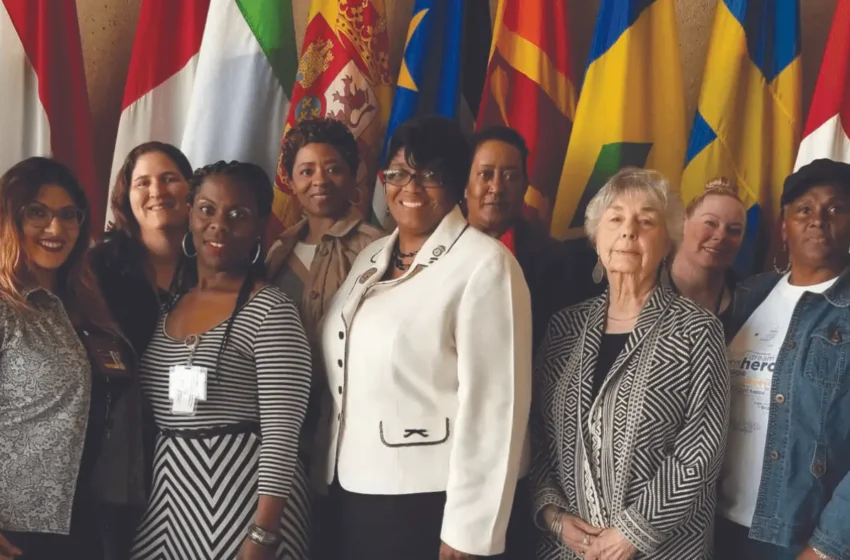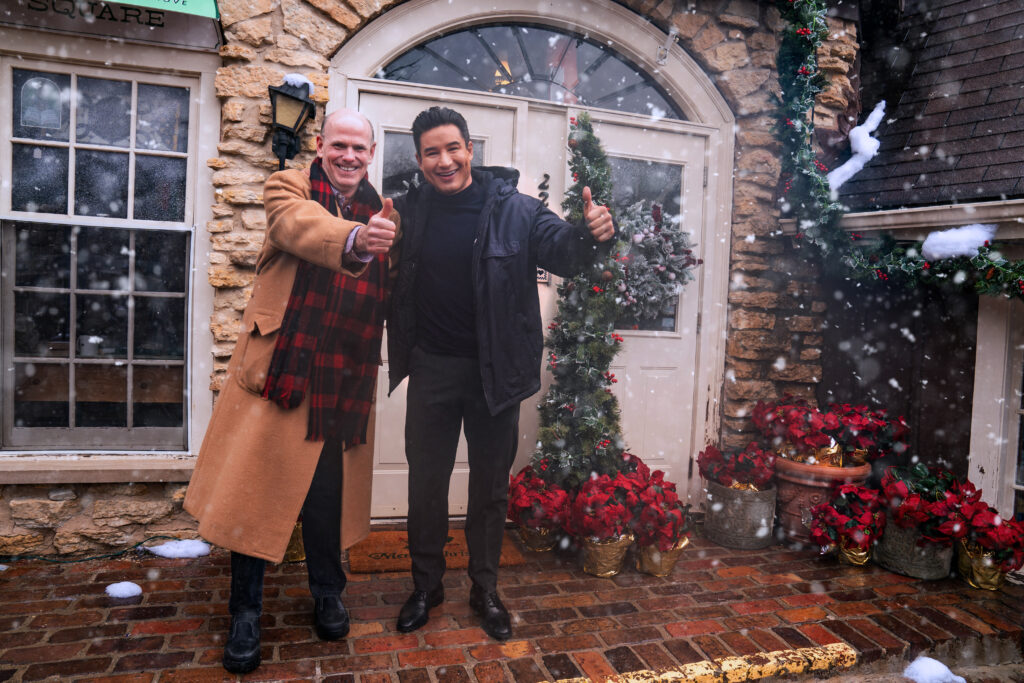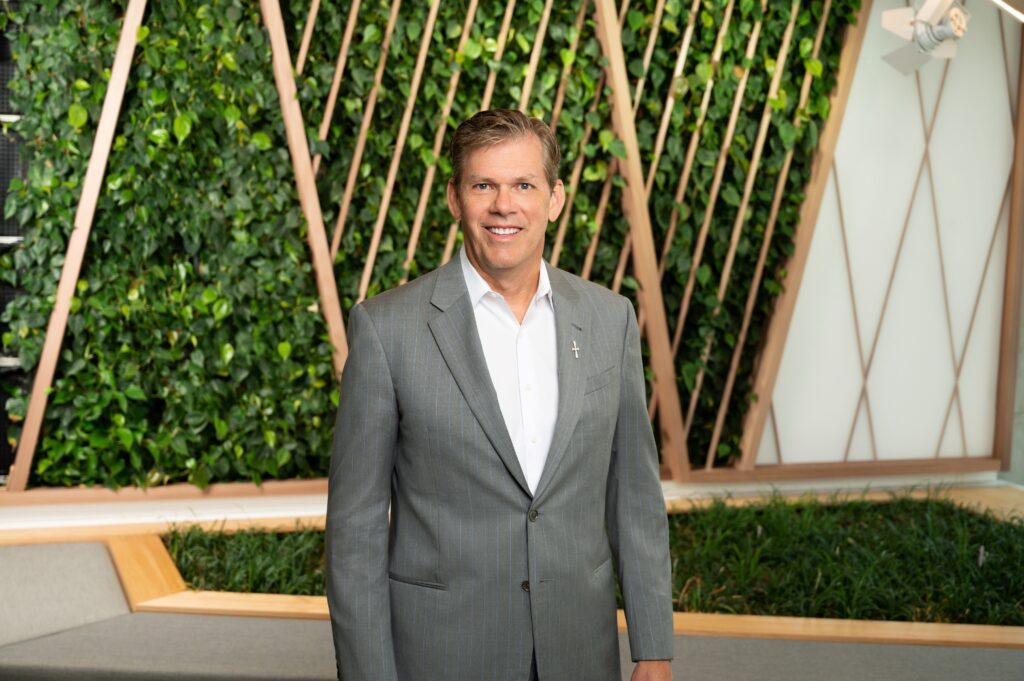From Struggling To Success
- September 19, 2023

Empowering Military Women in Business Through the VWEC
Military men and women know how to think strategically and stare down the opposition. US Navy veteran VR Small has spent her life doing exactly that, both in and out of the military. A strong business acumen and her nurturing nature made her the ideal person to launch the Veteran Women’s Enterprise Center (VWEC), an organization aimed at thrusting entrepreneurial military women from struggle to success.
Small founded the VWEC after research showed that military women were struggling to run their businesses. Dallas-based VWEC is a one-of-a-kind center for entrepreneurial women affiliated with the military such as veterans, military spouses, reservists, and active-duty military personnel. Small’s vision for the VWEC was to be the place where military women make connections while learning how to scale their businesses together.
Small is a self-proclaimed army brat. Multiple military relocations meant that her childhood zigged and zagged throughout the country. Just as she was about to finish high school in Dallas, her stepfather received orders to Fort Hood (now Fort Cavazos) in Killeen, Texas, and her life changed once again. Small joined the US Navy at 17, almost immediately after graduation—much to the frustration of her parents. Although Small had grown up in the military, her parents had a different vision for her after graduation.
Nevertheless, she wanted to go to the Naval Academy.
Once she’d enlisted in the navy, Small’s aspirations were at the mercy of higher-ranking officers.
“I wanted to either be a JAG (judge advocate general) officer or study journalism, but my recruiting officer told me I needed to go to a school to get to a school,” Small says. The recruiter meant she needed to start at Point A to get to Point B, but it turns out that wasn’t entirely correct.
She was assigned to be a hospital corpsman, and although the job wasn’t her first (or second or third) preference, she was determined to succeed. “I remember getting to boot camp and telling my commanders that I was going to train as a corpsman and then move up to officer school, and they looked at me like that was the funniest thing they had ever heard,” she recalls. “They said, ‘It doesn’t work that way, Small.’ You don’t go from being enlisted to becoming an officer unless you undergo a complex process.”
When most people may have gnashed their teeth and thrown their hands in the air, Small double-downed on her resolve to do whatever jobs were assigned to her.
“I thought to myself, where do I have strengths, and where can I grow? I knew I needed to make the most of my experience, so I never stopped trying,” she says.
Flash forward to 2015. Small was no longer in the navy and had just moved back to Dallas after spending several years in New York running a successful business and launching a powerful women’s networking group. Once back in Dallas, she planned to teach, pursue her doctorate, and eventually write a book. Despite several years of academic teaching experience, securing an academic assignment didn’t progress as planned, so she became involved with local veterans’ business organizations.
That’s when things took a turn.
“I saw a post about an event called Roll Call in Lubbock,” she says. “It’s a 2½-day personal and professional growth event designed for women veterans to make connections while attending workshops. Roll Calls rotated to different cities, so I asked them to come to Dallas. They said they had no one to organize it and asked if I’d do it.”
Navy veteran VR Small discovered that women veterans disproportionately struggled to run their businesses. She created the Veteran Women’s Enterprise Center to help her sisters-in-arms scale for success.
How did spearheading a Roll Call event evolve into starting the VWEC?
I had just moved back to Dallas from New York, so I wasn’t prepared to organize an event like this. The Texas Veterans Commission (TVC) tried to find people to coordinate a Roll Call in Dallas but said no one was interested. And I said, “Well, I think you reached out to the wrong people. You need to try again.” Considering our community had several veterans’ organizations, it didn’t make sense that they couldn’t find anyone to lead.
The TVC hosted another conference call and assembled a great group of people committed to leading the Dallas Roll Call. Since I launched and ran a successful business in New York, I volunteered to lead an entrepreneurial workshop for the attendees. During my workshop, I planned to share resources that support military entrepreneurs. Many programs claimed they support veterans, so it should’ve been a piece of cake. But when I reached out to them, 98 percent of them said no. Either they didn’t have somebody or weren’t really doing it, but either way, none of them supported us.
I had to come up with a plan quickly. I’m a SCORE mentor, and I got some of my SCORE colleagues and asked if they’d help me put the entrepreneur seminar together. We put the workshop on, and about 25 to 30 women attended. It was a big success.
But after the workshop, people kept reaching out about what was next, and I thought that was so strange. This is a once-a-year event; nothing is next. I started thinking about how many people didn’t support us. So, I did more research to determine if there’s a need for entrepreneur support for veteran women. Sure enough, the numbers said yes.
What did the numbers tell you?
I came across the 2007–2012 census report that everybody was using at the time. The report illuminated how military women entrepreneurs were growing. They went from 4 percent to more than 15 percent—nearly 400,000 new businesses in just five years.
I noticed nobody was talking about the growth military women were propelling. The reports said we needed women-specific programming and more data, but I didn’t see anyone doing the research. And there was limited programming, primarily online, to help these women veteran entrepreneurs.
But the really telling numbers were that 97 percent of those women reported income below $25,000 annually; the other 3 percent reported collective revenues of more than $10 billion. Upon further research, I found a report that said if this small group produced revenues proportionate to their size, they should’ve reported almost $29 billion.
What unique hurdles do military women face, especially as leaders?
There are definitely some unique challenges. Number one, women in the military are trained and taught differently to be leaders, but that training doesn’t always merge well in a civilian environment. In the military, we’re taught to solve problems quickly. We don’t get to say, “You know what, captain? I’d like to discuss this with so-and-so.” Our answer is, “Yes, sir!” or “Yes, ma’am!” and then we get to work.
In a civilian scenario, you might have a veteran who knows how to solve a problem, and she’ll jump right in. Even if she’s not the most senior person in the room, she might take charge of the situation without consulting a committee. That’s often seen as being overconfident or not a team player.
Another key difference is that women stand alongside men in the military; we’re not allowed to be less than them. But we know in the civilian world, women are not always lined up equal to men. So, when a female veteran enters this environment, she might not immediately see the differences. She might think, “I’m as competent as that person over there.” And again, that can be pegged as aggressive or overconfident.
Walk us through how the VWEC works.
First and foremost, VWEC is all about connection. Our slogan is, “Connecting You is What We Do.” We connect women to people and resources to scale their businesses, and I do that by providing a CEO Suite of Services at our center.
The C stands for our collaborative community offering coworking, conference facilities, and a cafe lounge. It’s the heartbeat and hub of our concept.
The E is for our engagement activities. Not only do we have events, but we have programs, and those programs are how we track success. For example, our Financial First Weekend Series equips our clients with financial fundamentals to run their businesses. We provide them with technical assistance, and then they tell us how they will use it. After a mentoring session or workshop, we want to ensure they act on what we discussed or what they learned. Did they finish that business plan? Did they file that LLC? Did they apply for that loan or grant? Unless the client acts on the information provided and does something, we haven’t created an impact.
The O stands for other resources. The military has a centralized place where you can go, and those people know everything. There’s no second guessing—there’s an answer for everything. When you get out of the military, there’s no centralized anything. You can go to 13,000 places and still not get what you need.
Women call us about all kinds of things that have nothing to do with the VWEC. For example, we have people who call us about housing. We don’t do housing, but we know people who can assist. We don’t want to see any veteran fall through the cracks because she can’t find what she needs. So, it’s our job to know what the other resources are so we can get them connected.
You expanded nationwide during COVID. How did you defy the odds?
When I started the VWEC before the pandemic, my first space was, oddly enough, in an old armory with 14-inch walls and no internet. Obviously, that wasn’t going to work, but through some serendipitous connections, we were able to install the internet. So, in 2020, we hadn’t really even launched our full CEO Suite of Services. We were doing events and networking but not solid programming because the facility didn’t work appropriately until we installed the internet.
When COVID happened, we went online and BOOM. Like everyone else, we were forced to go virtual. We engaged more than 500 women in one quarter, which was usually our annual target. Because everyone was sitting at home scrolling the internet, the VWEC attracted veterans nationwide. We’re in more than 30 states now … and counting.
We recently moved into our new home at the Comerica BusinessHQ in south Dallas. Our new facility is helping our entrepreneurial ecosystem flourish!
Tell us about your T-R-U-T-H talk.
I always tell people we are not dealing with things; we’re dealing with human beings. Yes, my lane is business, but if my veteran has no roof over her head, she’s probably not doing good business. If she can’t find childcare, she’s probably not doing good business. If she’s struggling with her health, she’s probably not doing good business. If I just focus on business as if the rest of her doesn’t matter, I’m definitely not doing good business.
I have a talk called “Knowing the TRUTH About You.” T-R-U-T-H is an acronym. And, whenever I feel like someone is stuck, they’re putting themselves down, telling me all the things they can’t do, I give them the TRUTH talk.
The T is to take care of you. Make yourself the top priority by staying on top of your physical, spiritual, and mental health.
The R is romanticizing your vision. How do you want to be? How do you want to look, act, and feel? You’re going to write the story of you, and you’re going to bring it to life like an amazing romantic novel. Then, enjoy the journey.
The U is utilizing expanded posture. So often, women walk into a room, and they squeeze into a corner, or they go to the back, or they sit on the side. When you walk into the room, don’t just quietly shuffle in; grab a seat at the table. Grab a seat at the front of the room like you belong there—because you do.
The T is telling your story. You have a story to tell, and it’s up to you to share it. Don’t be afraid of telling your story because no matter what it is, no matter how much you’ve gone through, it’s your story, and it’s still worth telling.
The H is to be your own hype person. If no one is talking about your greatness, you’d better be the one talking about it. I’m not talking about being conceited; I’m talking about confidence. Sometimes you simply have to encourage yourself and let others know all the extraordinary things you are doing.
What anchors you during tough times?
Last year, I was honored with the prestigious title of a “Sister with Superpowers,” an award that left me momentarily at a loss for words when asked to unveil my extraordinary abilities. However, upon reflection, a profound realization dawned upon me. “VR” not only represents my name but also symbolizes the remarkable powers within me: vision and resilience.
Vision, for me, is deeply rooted in my faith, as I draw inspiration from the Scriptures that urge us to write down our vision, make it clear and tangible for others to comprehend, and join in the pursuit. Amid the tumultuous challenges posed by the pandemic, the unyielding focus on the vision for the VWEC anchored me.
Resilience, on the other hand, emanates from my trust in God’s Word, which assures us that all things work together for the good of those who believe in Him. In those moments when everything appeared to crumble around me and despair loomed, I had to wrap myself tightly in my faith. During those lonely hours, I reminded myself there is a greater source of power accessible to me at all times. By seeking God above all else, I have witnessed how He orchestrates circumstances and the provision He bestows upon me—not always what I want, but what I need.
I suggest we all explore, identify, and embrace the superpowers within us and use them to inspire, uplift, and empower ourselves and others. Together, we can overcome any obstacle and achieve greatness, leaving an indelible mark on the world around us.
LIGHTENING ROUND
Who do you admire as a female CEO or leader?
Gayle King, CBS Morning News. I really appreciate her leadership in sharing her honest opinions when honest opinions were not encouraged to be shared by any news anchor.
Complete the sentence: My favorite thing about Texas is …
Its scenic landscapes. Almost around every corner, there’s something beautiful to see.
What’s something that would surprise people about you?
I received a call back after auditioning for the original Broadway production of Dreamgirls!
What’s your can’t-live-without-it technology?
Honestly, my phone. I have everything in it. I don’t live on it, but I wouldn’t want to lose it.
How do you stay balanced?
I try hard to carve out “me” time to meditate on the Word, take a scenic drive, watch a good action movie, or simply rest whenever possible.





